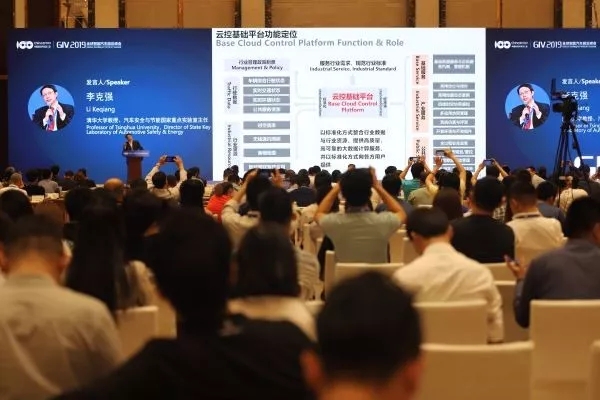

Li Keqiang, professor at Tsinghua University, speaks at the 2nd Global Intelligent Vehicle Summit held in the Wuhan Economic and Technological Development Zone on Sept 21. [Photo by Kang Peng/WeChat account: whkfq0518]
The 2nd Global Intelligent Vehicle Summit (GIV) was held in the Wuhan Economic and Technological Development Zone in Wuhan, capital of Central China’s Hubei province, on Sept 21.
The event’s slogan is “strengthening top-level design and exploring application scenarios”.
More than 30 experts and business leaders from China and abroad took part in the event and discussed a wide range of topics, including automatic driving technology and relevant policies and regulations.
Experts said that intelligent connected vehicles (ICVs) are becoming popular around the world and that new concepts present both opportunities and challenges for all related businesses.
Wuhan plans to make use of its 5G strength, the Beidou navigation satellite system, and its automobile manufacturing capabilities to accelerate the development of the ICV industry.
The China Automatic Driving Industry Development Report (2019) was also released at the summit. It indicated that there is still ample room for development in China’s automobile market.
According to the report, China sold more than 28 million vehicles in 2018, and has ranked first in the world in terms of car sales for the past 10 years. ICVs tend to be more accepted by Chinese consumers than those from other countries.
In addition, a million-kilometer road connecting ports, mines, and industrial parks in China provides support for the development of diverse automatic driving technologies.
World-leading internet and communications companies, including Alibaba, Tencent and Huawei, have increased China’s competitiveness in big data, cloud computing, internet of things, and artificial intelligence.
The report also noted that the production capacity of self-driving vehicles and core automobile parts in China lags behind some other countries.
Strategic plans are needed for the coordination of vehicles and roads, and construction of relevant infrastructure.